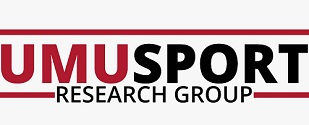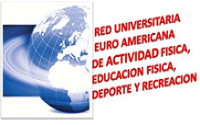The role of sport in the development of international relations from the perspective of political and non-political figures in Jordanian sport
Abstract
The aim of this study was to identify the role that sport plays in improving international relations from the perspective of Jordanian athletic political and non-political figures, and also to find the differences in the perception of the role of sport in developing international relations among status variables. The researchers used the descriptive approach due to its relevance to the nature of the study. A total of 122 individuals participated in this study: politicians (n = 33), non – politicians (n = 89). The questionnaire was used as a tool to collect the data. It was designed through personal interviews and it surveys five fields: political field, media field, economic field, and the social and cultural field. For data analysis, we used the Statistical Program for Social Sciences (SPSS). The findings showed that the role of sports in improving international relations in the five fields listed above was undeniable. There was no statistically significant difference in the total score of the role of sport in improving international relations when it comes to status (p > 0.05). Furthermore, the results showed no statistically significant difference between the members of the controlled sample whether they were politicians or non-politicians (p > 0.05). Jordanian politicians and non-politicians believe that sport is an important tool for improving international relations and could be a starting point for public diplomacy dialogue. The researchers strongly recommend the need to work on activating and supporting sport media as it has a big role in developing international relations, and to work on improving sport performance because of its great impact in showing countries at international level.
Downloads
References
Al-Shadeda, M. (2012). The role of sport in international relations between Jordan and some Arab and foreign countries from the Jordanian diplomats point of view. [Master's thesis, Yarmouk University, College of Physical Education].
Awoyinfa, J. O., & Adebayo, O. S. (2016). The Contribution of Sports, Physical Education and Recreational Indices in Promoting Health and Peace among the Youth in Nigeria. Literacy Information and Computer Education Journal, 7(3), 2353-2360.
Bainvel, S. (2005). Sport and Politics: A study of the relationship between International Politics and Football. [Master’s thesis, MSC program in IR & European relations, Linköpings Universitet].
Barnett, G. A., Xu, W. W., Chu, J., Jiang, K., Huh, C., Park, J. Y., & Park, H. W. (2017). Measuring international relations in social media conversations. Government Information Quarterly, 34(1), 37-44.
Beutler, I. (2008), Sport serving development and peace: Achieving the goals of the United Nations through sport. Sport in Society, 11(4), 359-369.
Boyacioğlu, F., & Oğuz, A. G. (2016). The Role of Sports in International Relations. Relationes Internationals, 9(1), 99-108.
Darnell, S. C., & Hayhurst, L. (2012). Hegemony, postcolonialism and sport-for-development: A response to Lindsey and Grattan. International Journal of Sport Policy and Politics, 4(1), 111-124.
Donnelly, P. (2008). Sport and human rights. Sport in Society, 11(4), 381-394.
Giulianotti, R. (2011). Sport, peacemaking and conflict resolution: A contextual analysis and modelling of the sport, development and peace sector. Ethnic and Racial Studies, 34(2), 207-228.
Kay, T. (2009). Developing through sport: Evidencing sport impacts on young people. Sport in Society, 12(9), 1177-1191.
Kidd, B. (2008). A new social movement: Sport for development and peace. Sport in Society, 11(4), 370-380.
Kobierecki, M. M. (2013). Sport in international Relations. Expectations, possibilities and effects. Interdisciplinary Political and Cultural Journal, 15(1), 49-74.
Štulajer, I., & Štulajter, M. (2016). Significance of Sport in International Relations. Journal of Modern Science, 2(29), 381-388.
The works and papers that are published in this Journal are subject to the following terms:
1. The Publication Service of the University of Murcia (the publisher) has the Publication Rights (Copyright) to the published papers and works, and favors and permits the reusing of the same under the license indicated in point 2.
© Servicio de Publicaciones, Universidad de Murcia, 2013
2. The papers and works are to be published in the digital edition of the Journal under the license Creative Commons Reconocimiento-No Comercial-Sin Obra Derivada 3.0 España (legal text). The copying, using, spreading, transmitting and publicly displaying of the papers, works or publication are permitted as long as: i) the authors and original sources (Journal, publisher and URL of the publication) are quoted; ii) it is not used for commercial benefit; iii) the existence and specifications of this users license are mentioned.
3. Conditions of Self-Archiving. It is permitted and encouraged that the authors spread electronically the pre-print (before printing) and/or post-print (the revised, evaluated and accepted) versions of their papers or works before their publication since this favors their circulation and early diffusion and therefore can help increase their citation and quotation, and also there reach through the academic community.
The works and papers that are published in this Journal are subject to the following terms:
1. The Publication Service of the University of Murcia (the publisher) has the Publication Rights (Copyright) to the published papers and works, and favors and permits the reusing of the same under the license indicated in point 2.
© Servicio de Publicaciones, Universidad de Murcia, 2013
2. The papers and works are to be published in the digital edition of the Journal under the license Creative Commons Reconocimiento-No Comercial-Sin Obra Derivada 3.0 España (legal text). The copying, using, spreading, transmitting and publicly displaying of the papers, works or publication are permitted as long as: i) the authors and original sources (Journal, publisher and URL of the publication) are quoted; ii) it is not used for commercial benefit; iii) the existence and specifications of this users license are mentioned.
3. Conditions of Self-Archiving. It is permitted and encouraged that the authors spread electronically the pre-print (before printing) and/or post-print (the revised, evaluated and accepted) versions of their papers or works before their publication since this favors their circulation and early diffusion and therefore can help increase their citation and quotation, and also there reach through the academic community.




















